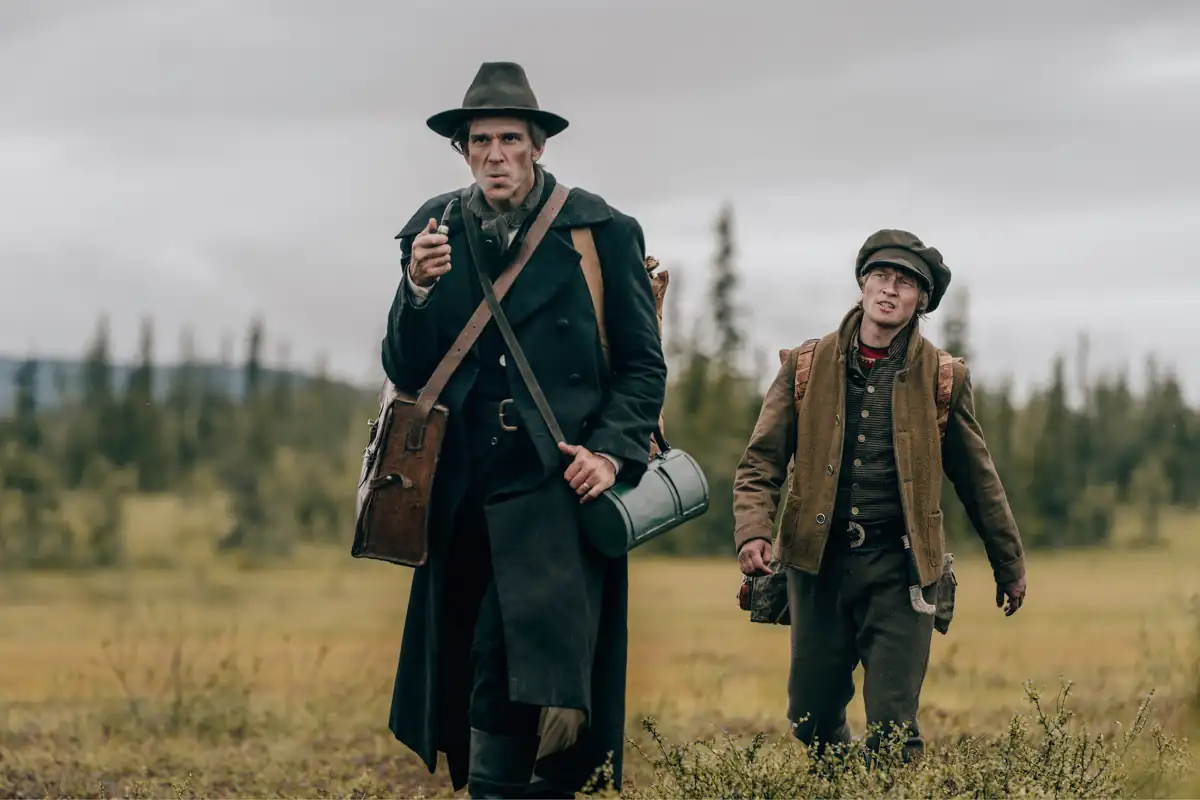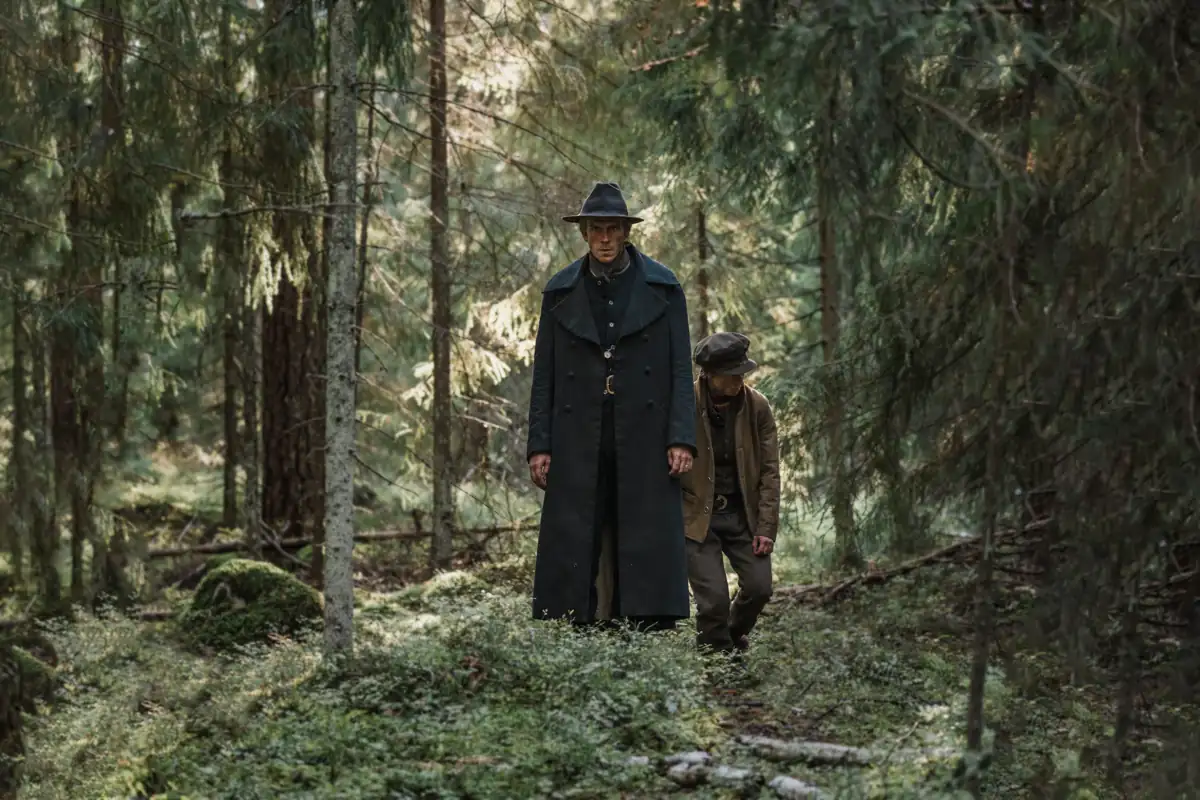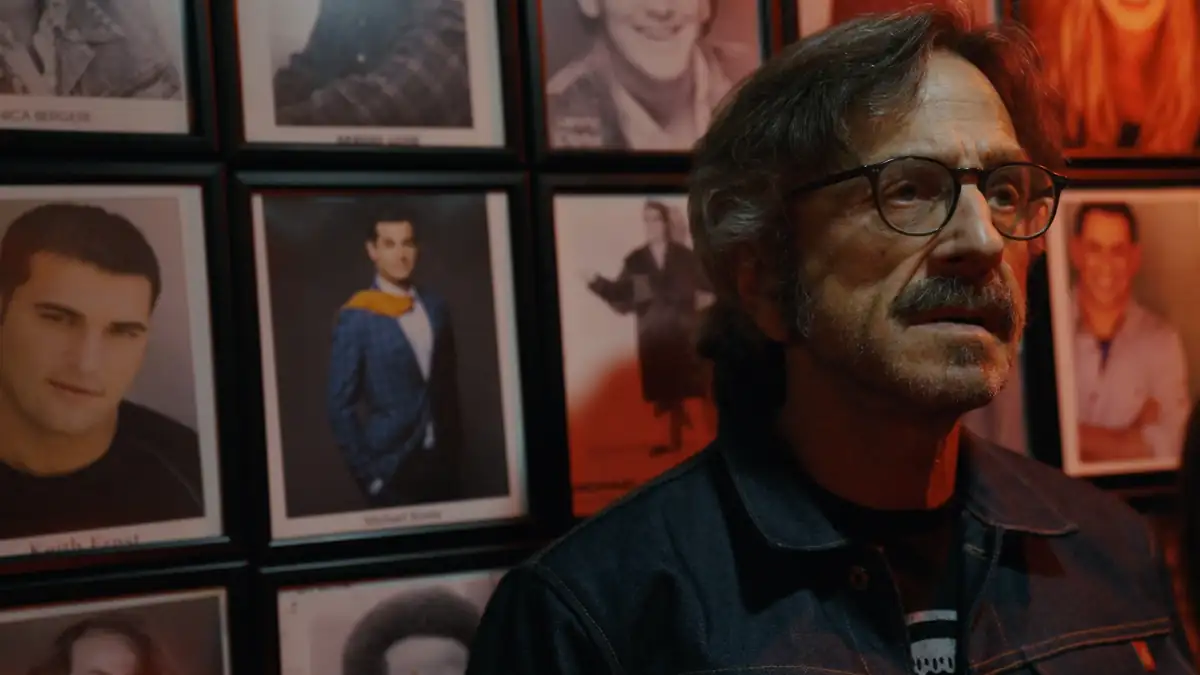To Cook a Bear, based on the novel of the same name, is a strange beast. It shares the DNA of Westerns and Sherlock Holmes novels, but its bones are knitted from both Nordic Noir and Southern Gothic. It is grandiose in scale, yet intimate in scope. Like its characters, it is a contradictory and fascinating viewing experience that's not for the faint of heart.
The year is 1852. We're somewhere far in the north of Sweden, where a runaway Sami boy, Jussi (Emil Karlsen), and his adopted father and mentor, The Pastor (Gustaf Skarsgård) arrive to the sleepy village of Kengis. Like most places during this time, Kengis is a devoutly religious community, and wholly insular to boot. Strangers bring news of the outside world, and news bring change, which is never good.
The Pastor, high on belief that he alone can bring forth righteousness, immediately seeks to topple the power structures within Kengis. His ward, Jussi, is viewed with barely disguised contempt for his Sami heritage. The local power couple, Madam Sjöhdahl (Pernilla August) and her husband Brahe (Magnus Krepper), are particularly hostile towards the newcomers.
Shortly after their arrival, a young girl goes missing. She is later found brutally murdered in a shallow bog. To complicate matters further, Jussi falls in love with the local maid Maria (Tyra Wingren). In the blink of an eye, the quiet lifestyle of the remote village has shattered, and everyone has someone to blame.
To Cook a Bear is a series about stripping layers of deception. Like a Western or Kurosawa samurai epic, it brings together players to the strict confines of an established society and allows their agreed upon lies collide until everything has eroded away. At the core might not be the truth, the series argues, but it's close enough.
Skarsgård is tremendous as the zealous pastor with a drive to do good, but a devotion-sized blind spot when it comes to his means. Series director Trygve Allister Diesen uses his anamorphic canvas like John Ford and reveals an entire geography of drama in Skarsgård's expressive face. We can tell where he comes from and what he's done from a stolen glance and crooked smile alone.
Newcomer Emil Karlsen is equally impressive as the downtrodden Jussi. As written, it's a part that could easily come across as lazy and one-note, yet Karlsen imbues it with a soulful longing for something greater, and a burning anger that threatens to explode at any minute.
The series is six episodes in length, each more or less an hour, and it threatens to lose the plot about halfway through. It would work better as a feature, even a three-hour one. While the handsome production is unlike anything seen in this part of the world before – and it is gorgeous – the ending would pack more of a punch if it got there sooner.
As the pacing picks up towards the end, leading to a densely packed climax that is over before you can register the resolution, it feels like the series itself agrees with the idea.
But it's hard to complain when things are this ambitious and grand. Diesen directs with assuredness of a master painter, embellishing the majestic landscape with visual flourishes reminiscent of The Searchers and Derzu Uzala. When violence breaks out, it feels like a perversion of the natural world. A broken promise that we'd do something better with the paradise given to us.
Nordic Noir is a funny kind of genre because it's so inherently particular to this corner of the world. We are built from contradictions and extremities, endless darkness and perpetual sunlight. By setting itself in the twilight hours between the two, To Cook a Bear finds an area unmined by the vast offering of likeminded serials.
It's a smartly crafted, eloquently written, superbly acted, and handsomely produced mini-epic that is both familiar and unexpected. It feels timely because the material itself is timeless. That alone might prove to be the most terrifying part of the whole thing.













